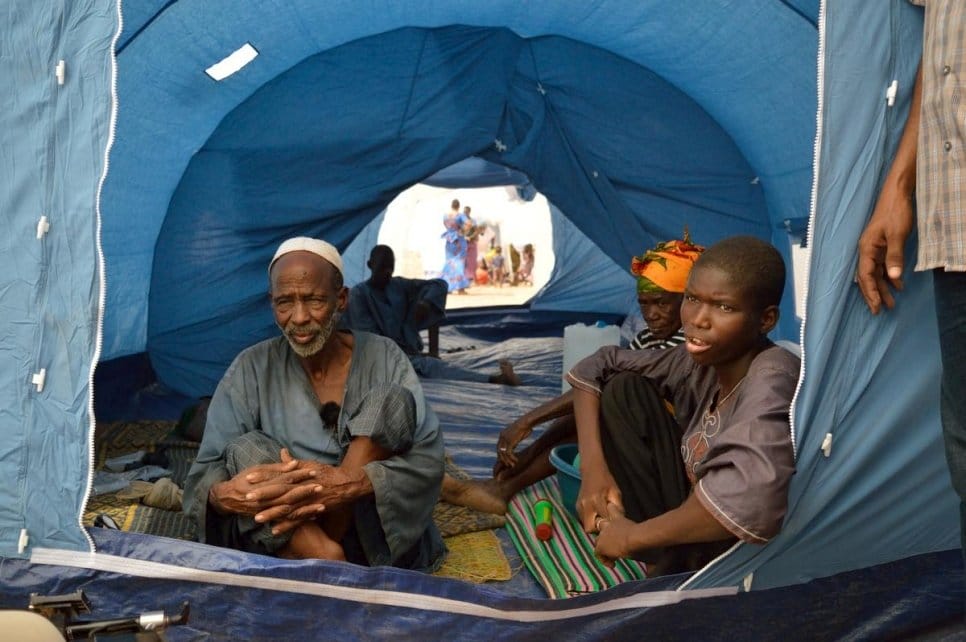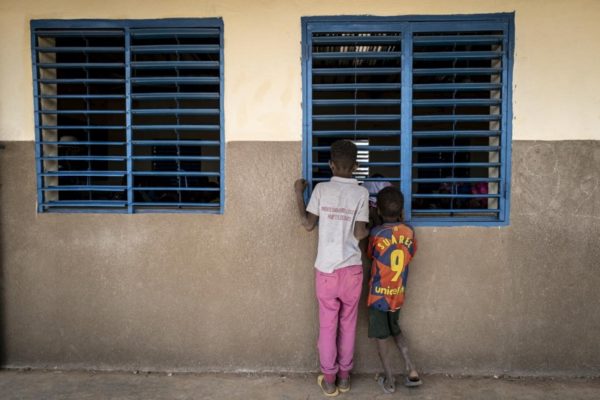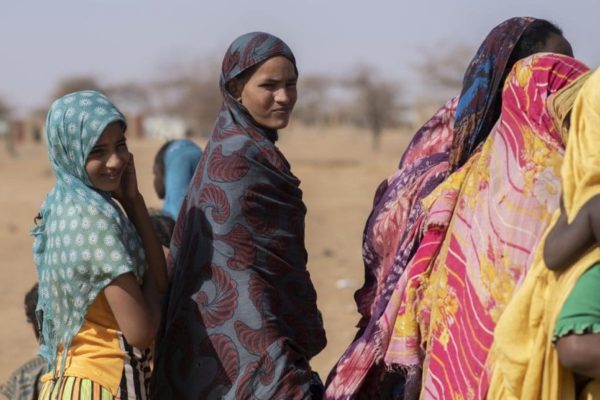
An elderly Malian refugee and his family at Mentao camp in the Sahel region shortly after arriving in May, 2018. © UNHCR/Moussa Bougma
UNHCR, the UN Refugee Agency condemns violence against Malian refugees, reportedly by the country’s security forces on May 2, housed in the Mentao refugee camp during which at least 32 people were injured, some seriously.
The camp is located in Burkina Faso’s volatile Sahel region close to the border with Mali and hosts some 6,500 refugees.
According to refugee accounts, security forces burst into the camp in search of armed elements involved in an attack on soldiers earlier that day on nearby Djibo-Ouagadougou road. The incident had left one security personnel dead and another missing.
Security forces undertook house-to-house searches in the camp and allegedly forced refugee men and boys out of their homes, beating them with sticks, belts and ropes.
Refugees were accused of complicity with the unidentified gunmen and given an ultimatum to leave the camp within the next 72 hours or face death.
“The actions of the security forces as reported to us are totally unacceptable”, said Millicent Mutuli, UNHCR’s Director for the Regional Bureau for West and Central Africa. “Refugees living in Mentao camp should be protected,” she added.
UNHCR has called for an urgent investigation into the incident in a letter addressed to the Minister of Foreign Affairs, while expressing grave concern for the safety of refugees.
All injured refugees are currently receiving treatment in the Djibo health centre, among them four with fractured limbs.
UNHCR reiterates its call on the Government of Burkina Faso to allow moving refugees from the camp to a safer location and has offered support to the authorities.
Violence had forced UNHCR to relocate its staff out of the camp in November 2019. Since then, access is sporadic to refugees, mostly women and children, living in dire conditions with schools, health centre and security post been forced to close.
For more information on this topic, please contact:
- In Dakar, Romain Desclous, desclous@unhcr.org, +221 786 396 385
- In Geneva, Charlie Yaxley, yaxley@unhcr.org, +41 795 808 702
- In Geneva, Babar Baloch, baloch@unhcr.org, +41 79 513 9549
Originally published by UNHCR on 04 May 2020




